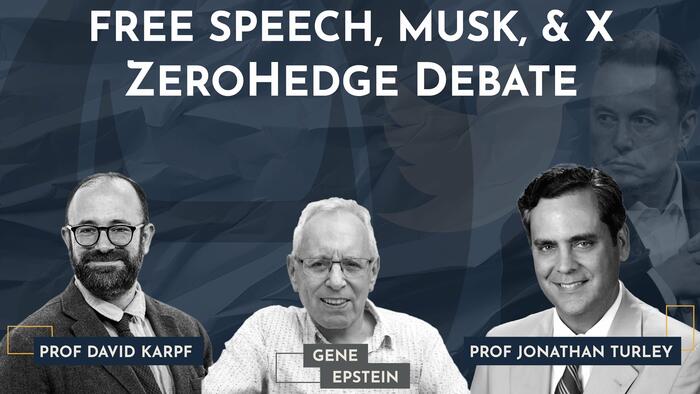Elon Musk’s acquisition of Twitter in late 2022 sparked a whirlwind of discussions, controversies, and predictions regarding the platform’s future, with significant media attention focusing on potential bankruptcy, disinformation issues, and alleged influences from organizations like the Anti-Defamation League (ADL). In a debate hosted by Gene Epstein, director of The SoHo Forum, two professors, Jonathan Turley and David Karpf, will delve into the implications of Musk’s ownership on issues such as free speech, censorship, and the role of government in regulating these dynamics. The debate, framed around the resolution that Musk’s purchase was a net positive for society, promises an engaging exploration of the diverse and contentious viewpoints surrounding these pivotal topics.
Supporting the notion that Musk’s acquisition was advantageous, Jonathan Turley, a law professor and prominent advocate of free speech, argues that Musk has dramatically elevated the status of free expression in contemporary society. He has been vocal in his support for Musk’s approach, labeling him as “the most consequential figure in free speech of our generation.” Turley emphasizes that while opinions on Musk may vary, his influence on enhancing free speech resonates strongly. In advocating for Musk, Turley draws upon his recent work, “The Indispensable Right: Free Speech in an Age of Rage,” which underscores the critical importance of maintaining robust free speech protections amidst prevailing societal and political tensions.
On the opposing side, David Karpf presents a starkly different perspective, criticizing Musk’s management of Twitter and predicting its eventual downfall. Karpf has claimed that Musk has violated election laws and consent agreements with federal regulatory agencies, painting a picture of instability under Musk’s leadership. His portrayal of Musk is unflattering; he describes him as a “ketamine-addled chump,” suggesting that the billionaire’s impulsive decision-making style threatens the platform’s viability. Karpf’s remarks highlight broader concerns regarding Musk’s capacity to effectively steer Twitter, particularly with allegations emerging around financial mismanagement and potential repercussions from regulatory bodies, such as the Federal Trade Commission (FTC).
The relationship between Musk and government oversight has also been contentious, with tensions arising following his takeover. For instance, the FTC, led by Lina Khan, faced criticism from public figures like Rep. Jim Jordan, who accused the agency of politicizing its scrutiny of Musk and Twitter. Such allegations suggest a combative climate between Musk and regulatory authorities, intensifying debates about the ethical and legal dimensions of his business practices. The indictment of Musk’s handling of Twitter has raised pressing questions about accountability and the role of government in regulating powerful social media platforms, particularly as they become central to political and social discourse.
Turley and Karpf’s debate will further illuminate the divide in public opinion regarding the broader implications of Musk owning Twitter, including the impact on free speech, misinformation, and digital governance. The question at hand acknowledges the rapid evolution of social media as a platform for communication and expression, particularly in the context of Musk’s admission of allowing more unrestricted dialogue. Discussions will likely address whether Musk’s policies foster a healthier environment for free speech or inadvertently exacerbate issues of misinformation and harmful content proliferating unabated across social platforms.
As the debate draws closer, much attention is directed toward the expectations surrounding both participants. Turley’s defense of Musk is anticipated to emphasize the restoration of free speech, possibly advocating for fewer restrictions on user content as a means of promoting open discourse. Conversely, Karpf’s criticism could highlight the risk of unregulated speech leading to the spread of misinformation, drawing on recent occurrences of inflammatory content on Twitter under Musk’s management. The contrasting views present an opportunity to dissect the complexities of free speech in the digital age, as well as the associated responsibilities of platform owners in curating content.
Ultimately, the clash between Turley and Karpf encapsulates a broader societal debate regarding the future of social media and its intersection with free speech, governance, and ethical responsibility. As Musk continues to steer Twitter, the ramifications of his ownership will likely shape discussions on digital platforms and their influence on public discourse for years to come. This high-stakes discourse signifies the critical nature of these debates, highlighting the need for careful consideration of the balance between fostering free expression and maintaining responsible governance in an increasingly interconnected world. Tune into the live broadcast for a thought-provoking examination of these diverse perspectives, set to take place on the ZeroHedge homepage and various streaming platforms.

